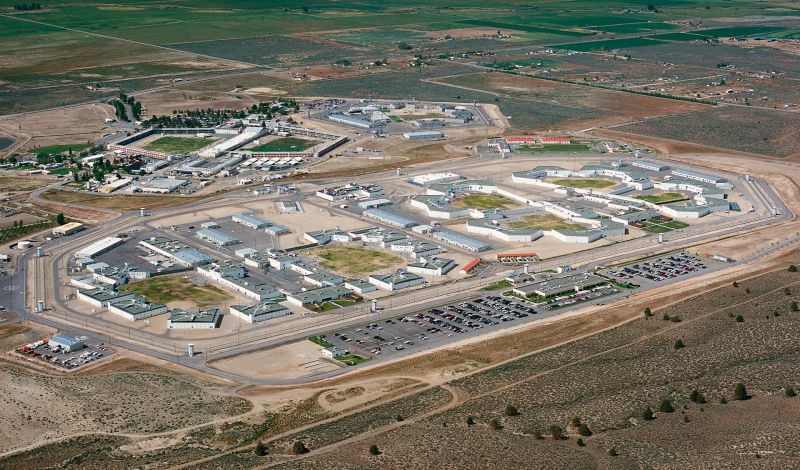The union sent a letter last month to Gov. Jerry Brown and every state lawmaker in what Barton called “the latest strong-arm tactic” to obstruct the investigation and discredit the inspector general before the report was released.
Union President Chuck Alexander and spokeswoman Nichol Gomez-Pryde did not immediately respond to calls and emails seeking comment.
The report came more than a decade after the Department of Corrections and Rehabilitation tried to stamp out a culture in which prison guards protect one another when they witness wrongdoing.
It says some problems at the High Desert facility evolved because the prison is so isolated — it’s about 90 miles northwest of Reno, Nevada.
Susanville has fewer than 16,000 people, and High Desert and the neighboring California Correctional Center are its largest employers. Workers form tight-knit social groups known as “cars” that can foster a code of silence and make it difficult to report wrongdoing, the inspector general said.
He found that the prison’s nearly 3,500 inmates won’t report abuse because they fear word will spread among employees and lead to retaliation.
The “staff complaint process is broken,” with few employee complaints investigated, the report states.
“This dangerous staff misconduct has been tolerated for too long,” Rebekah Evenson, an attorney with the nonprofit Prison Law Office who represents inmates, said in a statement. “The culture of abuse at High Desert endangers prisoners and the prison staff.”
She called for the department to create a strong external monitor to oversee reforms.
Corrections Secretary Jeffrey Beard, who is retiring later this month, said the department has already taken steps involving employee training, management changes and investigations of alleged wrongdoing.
“We do not tolerate staff misconduct of any kind,” Beard said in a statement.
The inspector general’s report also recommends changes statewide to make it tougher for employees to learn what crime an inmate committed.
Guards can now use an electronic state database to easily see which inmates have an “R” coding that designates a sex offender. Some spread that information, knowing sex offenders are often marked for retribution because of the nature of their crimes, the inspector general found.
He also called for an overhaul of special housing units designed to protect the most vulnerable inmates as the department combats a wave of violence and gang activity in what were supposed to be safe areas.

